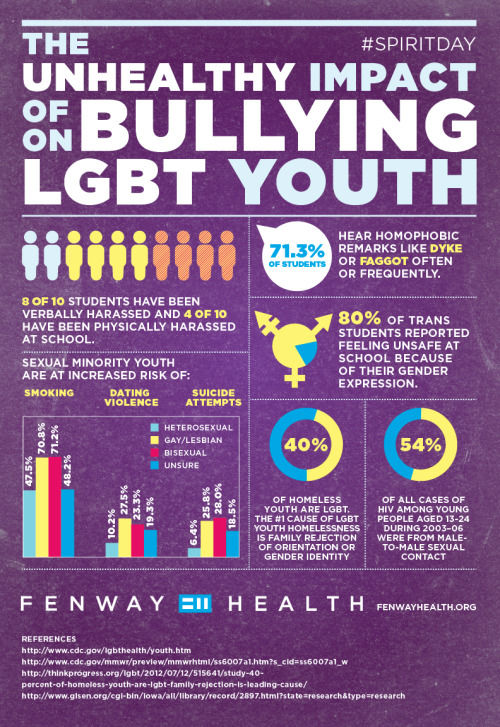Transgender
Trans Teens Face Discrimination at School—and the DMV
New research and a lawsuit shines spotlight on bias against transgender teens.
Posted February 8, 2018
This week, the ACLU filed a lawsuit in Alabama on behalf of two transgender women, Destiny Clark and Darcy Corbitt, who want their driver’s licenses to reflect their gender identities. As of 2018, Alabama is one of nine states in the U.S. that requires an individual show documented proof of surgery before they will change the gender category on the license. The ACLU has previously won similar cases in Alaska and Michigan.
This lawsuit matters, in part, because driver’s licenses matter—and it is critical that they accurately reflect what a person looks like. Imagine trying to get on a plane with an ID that says you are a man, but you clearly look like a woman. On a recent flight, I held up the security line for five minutes because I had just gotten a drastic haircut and wasn’t wearing my glasses, and the TSA agent couldn’t believe I was the person in the photo. That was simply an inconvenience, and I had to listen to the grumblings of the other passengers. For transgender people, having to discuss their gender identity every time they use their ID can result in much scarier consequences. According to research by the National Center for Transgender Equality, about one-third of transgender people have experienced mistreatment after showing an ID that did not match their gender. This simple act of showing an ID and having to “out” themselves increases their likelihood of being harassed, mocked, and assaulted.

Currently, Alabama says that drivers who want to change the gender listed on their license must show “proof of surgery.” This is inappropriate for a few reasons. First, since most people don’t drive with their genitals (I hope no one does, but you never know), an individual’s genitalia should be irrelevant to a driver’s license. Cisgender individuals don’t have to show medical documentation proving their genitalia conform to societal standards, and transgender individuals should not be held to a different standard. More importantly, a person can be transgender without having surgery. That is actually a completely independent issue. Studies show that many transgender individuals do not want surgery, and even if they do, they must factor in issues around their own medical histories, access to health care, and financial means. Indeed, only about 11% of transgender individuals have the type of surgery demanded by Alabama (National Center for Transgender Equality). So requiring medical documentation is discriminatory because it treats trans and cis people differently, and it doesn’t reflect what it actually means to be transgender.
The ACLU filing comes almost immediately on the heels of a study that was published this month in the journal, Pediatrics. In the study, G. Nicole Rider, Barbara McMorris, Amy Gower, Eli Coleman, and Marla Eisenberg reported on surveys completed by almost 81,000 teenagers in Minnesota. The findings from this study highlight why this driver’s license lawsuit is more important than you may think.
The researchers found that 3% of 9th and 11th graders in Minnesota don’t identify as a boy or girl. When teens were asked, “Do you consider yourself transgender, genderqueer, genderfluid, or unsure about your gender identity?,” 2,200 teens said yes. The lead author, Rider, told the Associated Press, “Diverse gender identities are more prevalent than people would expect.”
This study also found that the transgender and gender nonconforming teens had poorer health than the cisgender teens. For example, only 38% of transgender and gender nonconforming teens reported that their general health was either very good or excellent, compared to 67% of cisgender peers. The trans and nonconforming teens also reported lower rates of preventive health checkups, and more visits to the school nurse’s office than their cisgender peers.

These health disparities are not surprising given the climate of their schools. Other studies have shown that 80-90% of transgender teens report being targeted by peer discrimination (Mitchell et al, 2014) or called a homophobic and derogatory name (Greytak, Kosciw, Diaz, GLSEN, 2009). One-half of the transgender youth report being physically harassed and one-quarter physically assaulted because of their gender identity (Greytak et al., 2009). This is a typical day of high school for transgender teens.
These studies with high-schoolers include youth who are also nervously studying for their driver’s tests, practicing parallel parking with mom or dad in the empty parking lot and trying to learn all the rules about right-of-ways. Based on the newest research, more of those teens than you might have realized are also transgender. They are soon headed to the DMV to take their driver’s test. Unfortunately, in at least in 9 states, they are about to face even more humiliation. Hopefully, if the ACLU wins, the new teen drivers in Alabama are about to be treated with the respect they deserve.
Check out this great article and video about talking to kids about being transgender.


